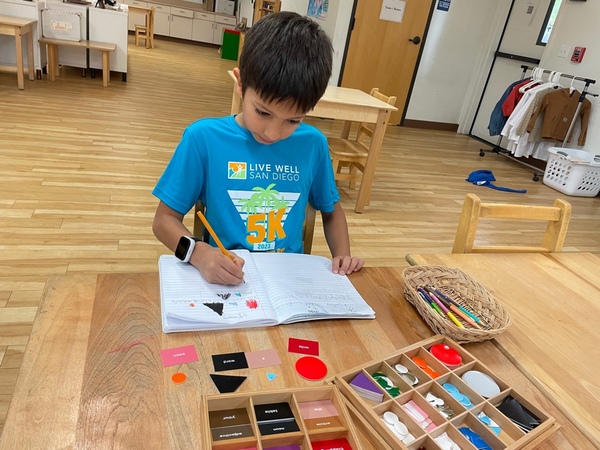(858) 759-0631
As a parent and a Montessori educator, praise versus encouragement comes up often in the classroom and my home. I remember when I was a child, and even a young adult, the best thing that anyone could say to me was "You're such a good girl." I wanted people to be proud of me and I craved that external validation until one day someone simply asked me, "But, are you proud of me?"
When I trained to become a Montessori guide, I kept hearing from other teachers about not praising the children's work. What? Montessori teachers don't praise work? How then did a child know if she'd done the work correctly? My colleagues suggested I use encouragement instead of praise. They suggested phrases like "Well, how do you think you did? What do you think of your work? What would you do differently if you had a chance to do the work again?"
Who doesn't enjoy praise? It feels good to know someone likes us or likes what we've done. Praise motivates good behavior—temporarily. Do I only act this way as long as I'm receiving praise? What happens when it's taken away? What are the conditions or parameters to ensure I continue to receive praise? In an article by Montessori Training, they listed praise statements and encouragement statements to show how they differ.
Praise Statements
- "You're such a good girl"
- "You did it just like I told you to."
- "All A's? You deserve a reward."
- "I'm glad you listened to me."
- "You know what makes me proud."
- "I'm proud of you."
Often, when praise is given, the receiver feels pressure to live up to the standards or expectations of someone else. Excessive, long-term praise can inhibit children from gaining independence because they rely heavily on the praise of those in authority positions. Encouragement is empowering. There are no conditions and it isn't judgmental. The receiver is encouraged to make judgments of their behavior, work, and ultimately, worth.
Encouragement Statements
- "I appreciate your help."
- "I knew you could do it."
- "You did your best and you didn't give up."
- "You must be proud of yourself."
- "I have faith in you."
- "I trust your decision."
- "I love you no matter what."
In the beginning, it may take some conscious effort to use encouragement, rather than praise. It may not feel natural or sound right to your ears. It takes restraint not to give praise for a job well done or to just automatically say "good job." I call this type of praise "empty calorie praise," they taste good on the tongue but there is no nourishment. Words like, "It was tough, but you stuck to it" and "You must be proud of yourself for accomplishing so much" will instill a sense of pride and accomplishment.
That's not to say that you should never use praise, either. But think of praise like a big, thick piece of chocolate cake. It tastes great and is good every once in a while. But we couldn't survive just eating cake. Encouragement is the nourishment our emotional body needs to sustain itself. In the long run, you will be building strong, healthy individuals who can look to themselves to make decisions and know the answers.
So instead of saying:
- "I am so proud of you for coloring in the lines."
- "You are always such a good boy."
- "You deserve a reward for cleaning up so well."
Try this:
- "You worked so hard sweeping the floor."
- "That was a difficult puzzle but you didn't give up."
- "Are you proud of your drawing? You spent a long time on it."
—Primary Teacher

